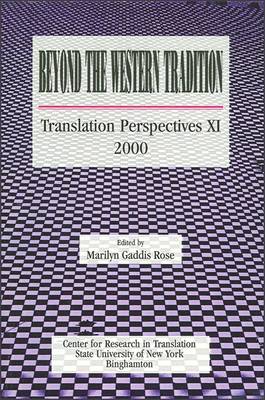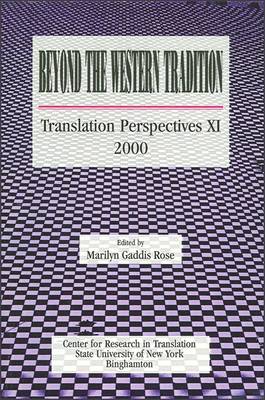
Bedankt voor het vertrouwen het afgelopen jaar! Om jou te bedanken bieden we GRATIS verzending (in België) aan op alles gedurende de hele maand januari.
- Afhalen na 1 uur in een winkel met voorraad
- In januari gratis thuislevering in België
- Ruim aanbod met 7 miljoen producten
Bedankt voor het vertrouwen het afgelopen jaar! Om jou te bedanken bieden we GRATIS verzending (in België) aan op alles gedurende de hele maand januari.
- Afhalen na 1 uur in een winkel met voorraad
- In januari gratis thuislevering in België
- Ruim aanbod met 7 miljoen producten
Zoeken
Beyond the Western Tradition
Translation Perspectives XI 2000
€ 53,45
+ 106 punten
Omschrijving
The contributors to the chief part of this volume take up both postcoloniality and translation theory, history, and practice in languages and cultures outside the chief Eurocentric orbit. Yet, it would be risky to assert that whatever their personal formation, they write independent of the Western traditions. Rather, most essayists move out from the Western tradition and use this conglomeration of received notions as a point of departure. Does this congruity of points of departure indicate the congruity of conceptualizing translation theory and practice? A congruity in viewing the history of translation? Or does it indicate that postcoloniality is still operating from Western epistemology? Or that epistemology is neither language nor culture-specific? There may indeed be a uni-directionality in learning and doing, and hence in translating. We are reminded of Robert Frost's premise in "Neither Out Far Nor in Deep" "The land may vary more;/ But wherever the truth may be--/ The water comes ashore, / And the people look at the sea."
Specificaties
Betrokkenen
- Uitgeverij:
Inhoud
- Aantal bladzijden:
- 444
- Taal:
- Engels
- Reeks:
Eigenschappen
- Productcode (EAN):
- 9781438439846
- Verschijningsdatum:
- 1/01/2000
- Uitvoering:
- Paperback
- Formaat:
- Trade paperback (VS)
- Afmetingen:
- 140 mm x 216 mm
- Gewicht:
- 589 g

Alleen bij Standaard Boekhandel
+ 106 punten op je klantenkaart van Standaard Boekhandel
Beoordelingen
We publiceren alleen reviews die voldoen aan de voorwaarden voor reviews. Bekijk onze voorwaarden voor reviews.








